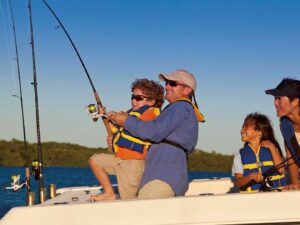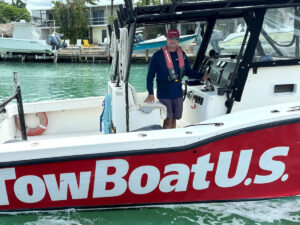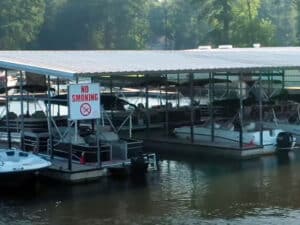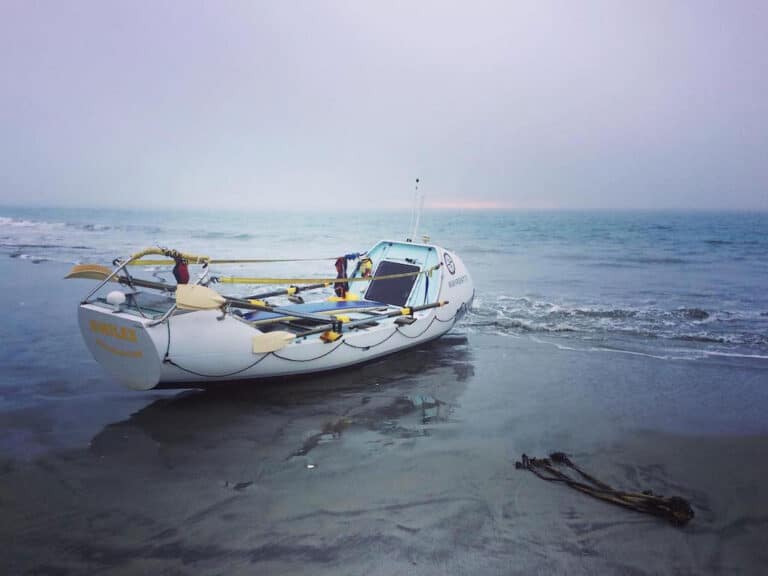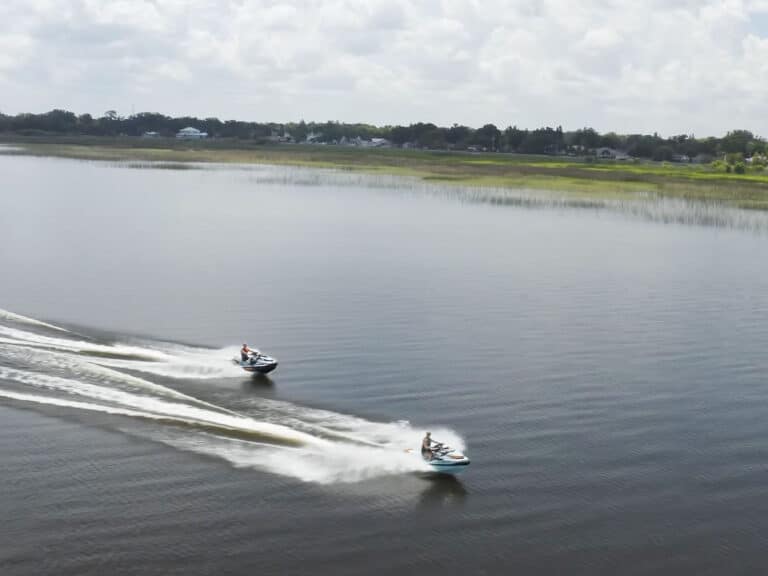
At night familiar landmarks and shoreline features disappear and are replaced by a confusing array of lights.
Fog can easily obscure rocky outcroppings and small boats. Use the appropriate required sound signals to let others know the status of your vessel.
Sound signaling devices come into play during periods of reduced visibility.
At night, navigation lights help vessel operators identify each other’s position, both at anchor and underway, and are required by law. Refer to your Navigation Rules Book or to A Boater’s Guide to Federal Requirements for Recreational Boats and Safety Tips for guidelines on appropriate display.
* * * * *
The U.S. Coast Guard is asking all boat owners and operators to help reduce fatalities, injuries, property damage, and associated healthcare costs related to recreational boating accidents by taking personal responsibility for their own safety and the safety of their passengers. Essential steps include: wearing a life jacket at all times and requiring passengers to do the same; never boating under the influence (BUI); successfully completing a boating safety course; and getting a Vessel Safety Check (VSC) annually from local U.S. Coast Guard Auxiliary, United States Power Squadrons(r), or your state boating agency’s Vessel Examiners. The U.S. Coast Guard reminds all boaters to “Boat Responsibly!” For more tips on boating safety, visit www.uscgboating.org.

